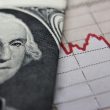by Greg Valliere, AGF Management Ltd.
AFTER TALKING WITH SOURCES on Capitol Hill yesterday, our initial impression is that there simply aren’t enough votes to pass President Biden’s mammoth proposal to raise taxes and spend trillions of dollars on U.S. infrastructure.
THE VERY EARLY CONSENSUS is that Biden can get some of the package through, “maybe half a loaf,” one GOP staffer said yesterday. But this uncertainty could become an irritant for the markets — and for nervous corporations that are flocking to Washington lobbyists this week, seeking advice on their potential tax liability.
OFF TO A SLOW START: Biden’s task will be complicated by two tragedies: First, the killings in Boulder, which will jump-start efforts to ban assault rifles and impose background checks (unlikely to pass in Congress but sure to prompt executive orders from the new president). And second, the ongoing crisis at the Mexican border, which seems to defy any quick solution.
THUS THE TAX HIKES AND INFRASTRUCTURE SPENDING will be left to warring factions on Capitol Hill, where there’s a distinct division: Progressives want to “go big,” but conservatives are adamantly opposed to more taxes and spending, while a majority in both houses sees a risk in spending too much on an economy that may recover robustly by summer.
REPUBLICANS COULD SUPPORT some of the infrastructure spending for highways, bridges, telecom and especially funding for manufacturing jobs that would challenge China’s dominance. But massive new social spending and higher taxes are a non-starter for Republicans, and probably would generate some opposition among moderate Democrats as well.
THERE’S A TEMPTATION TO NOT PAY MUCH ATTENTION to the committee markups, because the bill will get watered down, but the enormity of the tax hikes will force the financial markets to watch this carefully; there could be a significant impact on corporate profits and personal spending. Market psychology is crucial, and suddenly there’s the uncertainty of big tax hikes.
SOME INITIAL OBSERVATIONS ON TAXES —
The one tax goodie for wealthy Americans — a reversal of limits on state and local tax deductions — probably will not be included in the bill. This will disappoint several big state senators, including Majority Leader Chuck Schumer.
Assuming a bill passes, the top corporate tax rate is almost certain to rise, from 21% now to at least 25% or 26% in a final bill.
Other corporate tax hikes may include raising the global minimum tax from about 13 percent to 21 percent; ending federal subsidies for fossil fuel companies; and forcing multinational corporations to pay the U.S. tax rate rather than the lower rates paid by their foreign subsidiaries.
Higher individual taxes are likely if a bill passes. Tax hikes on the very wealthy are virtually certain, with the top rate rising from 37% currently to 39.6%, with fresh limits on deductions. The Biden plan apparently would tax capital gains as ordinary income — a total non-starter for Republicans, who also would oppose a hike in the estate tax.
BOTTOM LINE: The final outcome of this saga is unclear; again, the consensus is that Biden can get something but not all that he’s seeking now. There will be leaks and deal-cutting and uncertainty for months to come, which is a prescription — in our opinion — for market volatility until a bill clearly comes into focus by late summer.












